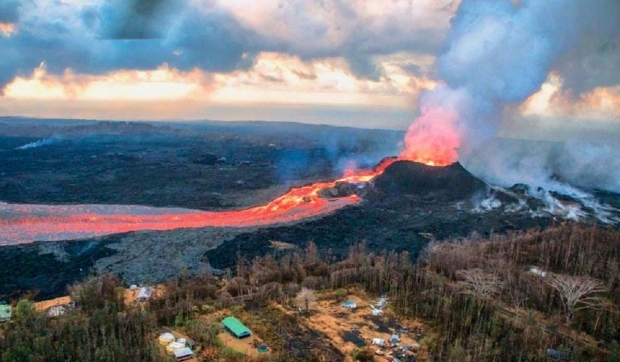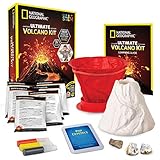Researchers have warned that a "catastrophic" supervolcano eruption could be much more likely than previously estimated.
A new study has warned that the likelihood of the super volcano beneath Sumatra's Lake Toba has a much higher chance of an eruption than previously thought. The researchers in the study say that previous estimations for an eruption have been based on the presence of liquid magma, but the new research states that "eruptions can occur even if no liquid magma is found".
According to Martin Danisik, Associate Professor at Curtin University in Australia and lead author on the paper that has been published in the journal Communications Earth & Environment said, "The findings challenged existing knowledge and studying of eruptions, which normally involves looking for liquid magma under a volcano to assess future hazard. We must now consider that eruptions can occur even if no liquid magma is found underneath a volcano - the concept of what is 'eruptible' needs to be re-evaluated."
This is just one of the 20 super volcanos around the world, and the last time it erupted was around 74,000 years ago, spewing six billion tons of sulphur dioxide into the atmosphere, reducing global temperatures to 15C and causing what a period of time that was a genetic bottleneck in human evolution. Eruptions from these super volcanoes happen about once every 17,000 years, and in between eruptions researchers are doing their best to understand how these eruptions occur, what triggers them, and if there are any early signs that can indicate an eruption is going to happen.
Professor Danisik added, "Gaining an understanding of those lengthy dormant periods will determine what we look for in young active supervolcanoes to help us predict future eruptions. Super-eruptions are among the most catastrophic events in Earth's history, venting tremendous amounts of magma almost instantaneously. They can impact global climate to the point of tipping the Earth into a 'volcanic winter', which is an abnormally cold period that may result in widespread famine and population disruption."
Professor Danisik said the following;
"Learning how supervolcanoes work is important for understanding the future threat of an inevitable super-eruption, which happen about once every 17,000 years."
"Using these geochronological data, statistical inference and thermal modelling, we showed that magma continued to ooze out within the caldera, or deep depression created by the eruption of magma, for 5000 to 13,000 years after the super-eruption, and then the carapace of solidified left-over magma was pushed upward like a giant turtle shell."
"The findings challenged existing knowledge and studying of eruptions, which normally involves looking for liquid magma under a volcano to assess future hazard. We must now consider that eruptions can occur even if no liquid magma is found underneath a volcano - the concept of what is 'eruptible' needs to be re-evaluated."
"While a super-eruption can be regionally and globally impactful and recovery may take decades or even centuries, our results show the hazard is not over with the super-eruption and the threat of further hazards exists for many thousands of years after. Learning when and how eruptible magma accumulates, and in what state the magma is in before and after such eruptions, is critical for understanding supervolcanoes."
For more information check out this link here.



